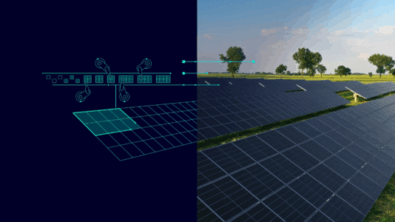Long live wind turbines! DTU Wind Energy

Have you ever wondered how they make sure wind turbines work and how they design them to last?
Wind turbines have become a very important player in renewable energy and sustainability. With climate change as the accelerating factor, there is a major focus on renewable energy in Denmark. However, setting up wind turbines is not 100% eco-friendly; the largest environmental impact from wind turbines comes from building, production, and transportation, not to mention the possible upkeep down the line.
Wind turbines, therefore, must perform as efficiently and as long as possible without breaking or causing trouble. But ensuring a strong and reliable wind turbine is no easy feat—it takes expert design early on in the development process to achieve proper durability, not by trial-and-error, but by intelligent design.
To achieve this, the Department of Wind Energy, Technical University of Denmark (DTU Wind Energy) collaborated with Siemens to use Simcenter testing solutions for the innovative ReliaBlade project. The project aims to tackle the goals established by the Danish policies on climate change migration by helping the development of wind turbines with engineering insights to ensure blade longevity.
For blade testing, DTU Wind Energy uses experimental structural dynamics to identify the blade. This includes experimental modal analysis, operational modal analysis, and strain-based operational modal analysis. In addition, DTU Wind Energy incorporated 3D finite element (FE) simulation and correlation with the test, using innovative testing techniques, such as Digital Image Correlation (DIC). The ReliaBlade project engineers gather this information to provide new insights when it comes to the structural design of the blades and how they can increase performance, durability, and longevity. The results of the ReliaBlade project show DTU Wind Energy how it can apply developed digital twin architecture from the full mockup to the full-scale blade.
We at Siemens have written a case study article that takes a deep dive into how they do this and more. Read the complete case study article here.


